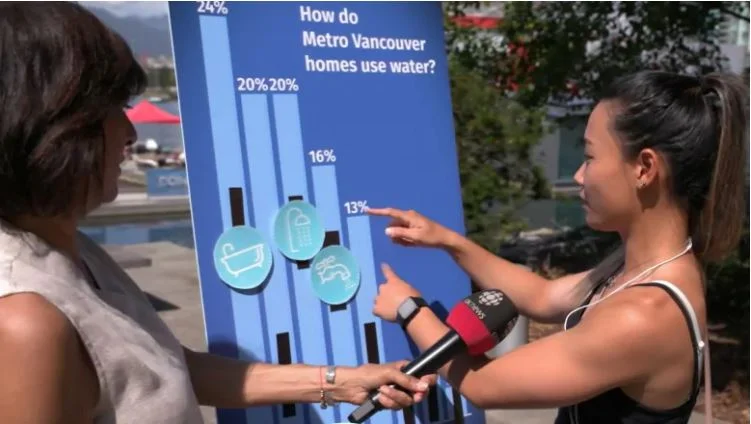Every home and business connected to the City of Winnipeg water supply could get a new water meter over the next few years, if the city approves a program to install more advanced metering systems. There are more than 200,000 existing meters in the city, 60 per cent of which are past or nearing the end of their service life, according to a new report to the water and waste committee.
Montreal mayor says no to water meters as city looks to reduce consumption
As the city of Montreal looks for solutions for its aging, leaky water infrastructure, Mayor Valérie Plante has made it clear that residential water meters are not an option. In theory, meters could be used to charge each household for consumption, thus encouraging people to use less and reduce the strain on a system that is essentially hemorrhaging drinking water.
Water, water everywhere, but mostly down the drain: How Vancouver is trying to plug excessive water use
Water in Metro Vancouver might seem like a limitless resource, but it's time for that notion to go down the drain. When it comes to home water use — for drinking, bathing, toilet flushing and more — Metro Vancouver is a pretty thirsty place. Residential water use in Metro Vancouver is 270 litres per capita per day. That's less than the City of Montreal's 286 litres per capita per day, but more than Toronto's 219 per day or the 210 per day used by residents of Calgary. So how do the thirsty residents of Metro Vancouver use all that wet stuff?
Why Vancouverites need to stop treating their water supply like a 'buffet'
Vancouver is known for rain and snow-capped mountains, both of which supply the city's water reservoirs. But as climate change continues to alter weather patterns and reduce rainfall, the supply will dwindle and Uytae Lee is thirsty for action to be taken now. Metro Vancouver is also predicting another one million people will arrive in the region by 2050 and predicts a water "supply gap" by 2030.





